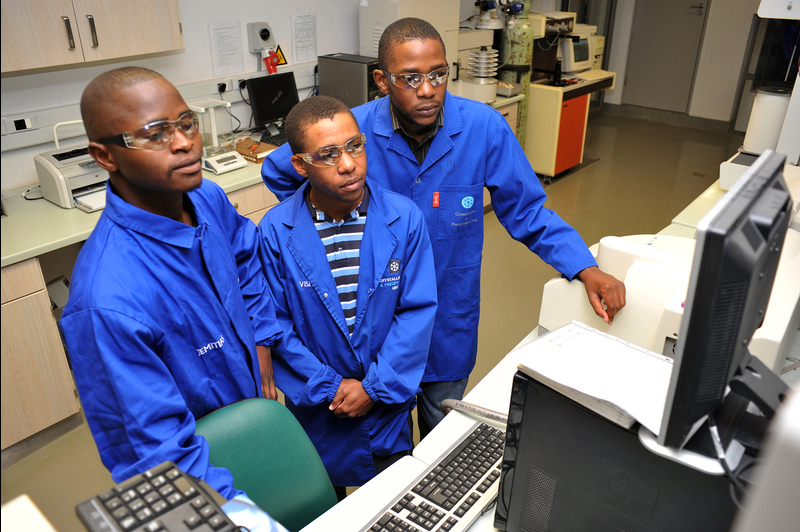Water Week: New one-stop laboratory for water researchers planned
11 March 2013
A new laboratory with the capacity to provide a comprehensive service to water researchers will open in the Department of Chemical Engineering in the New Engineering Building (NEB) in the near future. Monday Paper spoke to Professor Alison Lewis of the Crystallisation and Precipitation Research Unit.
MP: What is the name of this water laboratory/facility?
AL: It will be called H2O(aq) and it will be in the NEB.
MP: Is it a new facility or an expanded existing facility?
AL: It is partly new and partly an extension of some of our existing work.
MP: What will it offer in terms of laboratories and facilities?
AL: We intend to offer specialist water and brine analysis, as well as research. The intention is to be able to offer a service to researchers who are investigating various water-related questions; in other words, it's not a standard water analysis lab. So, for example, a researcher looking at how different river contaminants affect the aquatic life, or a researcher investigating the effect of trace metals on water treatment processes, or the effect of water composition on concrete corrosion of bridges... the scope is large, and I believe that there are many potential projects. The idea is that analyses will lead to research projects and also to collaborations between the projects through the common theme of water.
MP: Is it a sponsored or funded facility?
AL: It is a facility that is part of the NEB. The analytical equipment and the technicians will need to be appointed and funded over time. So far, we don't have a sponsor, but would welcome one. If we don't get one, we'll start small and grow.
MP: How big is the team and what is the nature of the research that will be conducted in this laboratory?
AL: At the moment, the team is the Crystallisation and Precipitation Research Unit and its members. The nature of the water research that we conduct already is research that focuses on novel techniques for water treatment. My philosophy is that we need to consider water and its contaminants as resources, and we need to design processes that recover both. We've already done extensive work on eutectic freeze crystallization, which freezes contaminated water and recovers the water as ice and the contaminants as usable salts.
MP: How important is this body of research?
AL: It's hard to promote the importance of one's own research when there are so many other critically important research activities and needs but yes, I do think that research into water is pretty important. Water is a finite and diminishing resource. Without it, we die.
MP: Will it feature any state-of-the-art machinery, technology or equipment?
AL: Water analysis has become much more technical. We use more state-of-the-art equipment and fewer wet chemistry techniques, although wet chemistry does still have a place. We are intending to use ICP-MS (inductively coupled plasma-mass spectroscopy) for metal analysis, HPLC (High-Performance Liquid Chromatography) for anion analysis, spectrophotometry, also for anions, Total Organic Carbon and bacterial tests; but also the basic tools, such as our old friends pH and conductivity.
 This work is licensed under a Creative Commons Attribution-NoDerivatives 4.0 International License.
This work is licensed under a Creative Commons Attribution-NoDerivatives 4.0 International License.
Please view the republishing articles page for more information.









